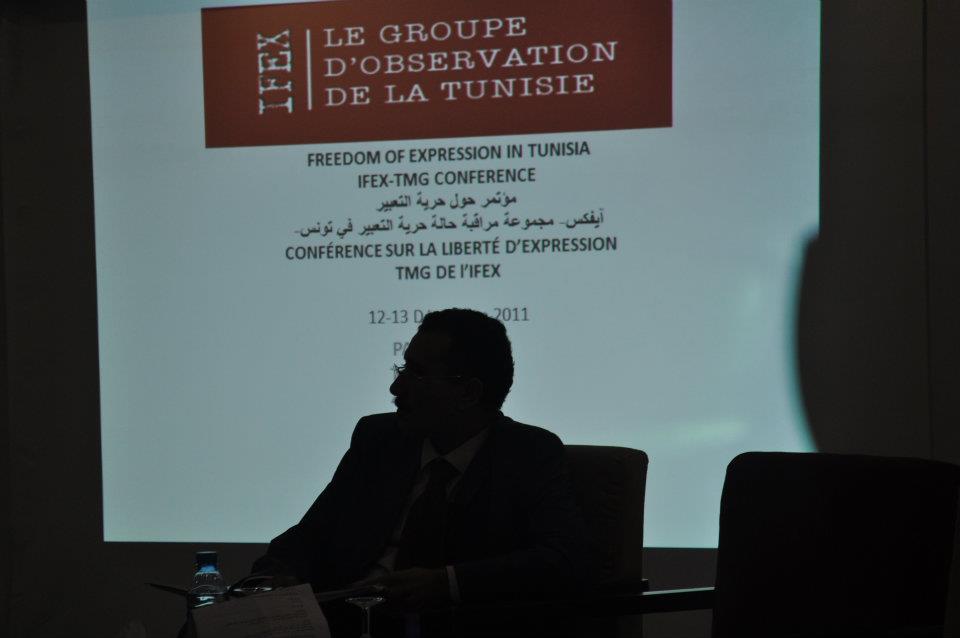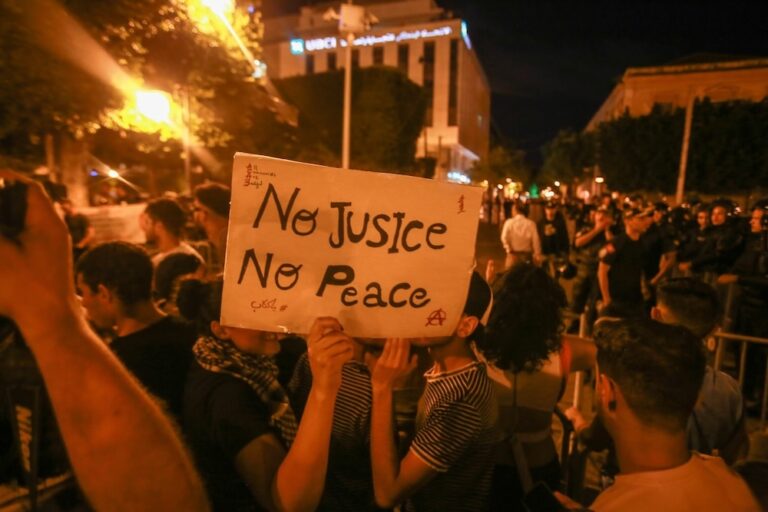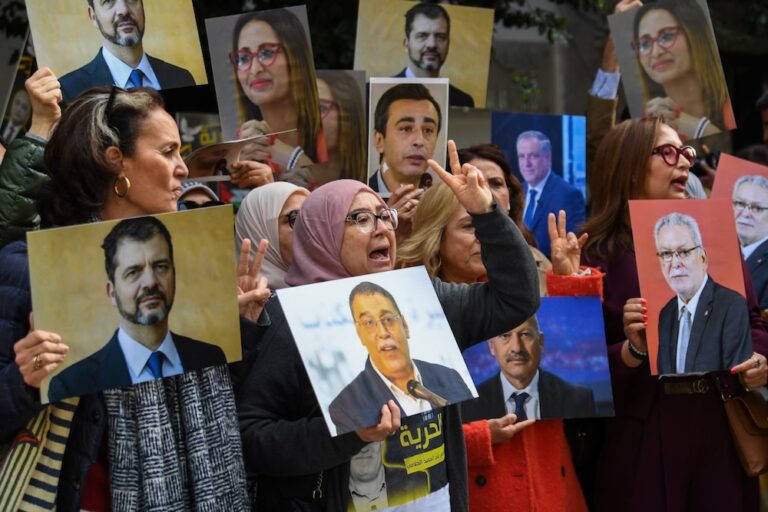IFEX-TMG meeting in Tunis on 12 and 13 December brought together journalists, bloggers, civil society, lawyers and academics to make recommendations on the realities and challenges of reforming the media sector.
(IFEX-TMG) – 21 December 2011 – As part of its campaign for free expression, the International Freedom of Expression Exchange Tunisia Monitoring Group (IFEX-TMG) organised a meeting in Tunis on 12 and 13 December that brought together journalists, bloggers, civil society, lawyers and academics to discuss the realities and challenges of reforming the media sector.
Nearly a year after the fall of Ben Ali, the malaise persists in a field devastated by decades of censorship and repression.
While Tunisia has set up a Constituent Assembly and a government is being formed, conference participants particularly emphasised the following requirements:
• Freedom of expression, media independence and access to information must be guaranteed in the Constitution. The independence of public service media and that of the High Authority for Information and Audiovisual Communication (HAICA) must also be guaranteed by the Constitution. The principles of equality and non-discrimination in exercising freedom of expression must be recognised.
• Support a legal and institutional framework that allows the emergence of a media landscape in step with the political, economic and social challenges facing Tunisia and capable of supporting the emergence of free and independent media, supported by an independent judiciary.
• Support the independence of public media through the legal revision of their statutes and guarantee the non-alignment of their administration.
• Dismantle the complex system of censorship established under Ben Ali and prevent its resurgence especially in the name of morality.
• Decriminalise press offenses while strengthening adherence to journalistic ethics and promoting self-regulation.
• Put an end to monopolies and ownership concentration that inhibit the development of audiovisual and print media.
• Ensure a clear and transparent distribution of public and institutional advertising and a break with the era of the Tunisian External Communication Agency (ATCE).
• Establish a fund to support community radio and adopt indirect subsidies to support the development of independent newspapers. Media pluralism must be supported.
• Supporting digital culture and its promoters, whose action for change has been – and remains – crucial.
Finally, conference participants reiterated their call to hold a media stakeholders meeting in Tunisia.
Among the Tunisian partners who contributed in the formulation of these recommendations, which they have since formally adopted, are the Association of Tunisian Magistrates (AMT), the Tunisian Association of Democratic Women (ATFD), the Tunis Center for Press Freedom, the Tunisian League for Human Rights (LTDH), the National Authority to Reform Information and Communication (INRIC), Nawaat, Tunisian PEN, the National Union of Tunisian Journalists (SNJT) and the SNJT media Observatory of SNJT, and the Tunisian Free Radio Syndicate (STRL).
The conference was convened and organised by the World Association of Newspapers and News Publishers (WAN-IFRA), in collaboration with the World Association of Community Radio Broadcasters (AMARC), ARTICLE 19, Index on Censorship, the International Press Institute (IPI) and the Arab Network for Human Rights Information (ANHRI). Supporters of the conference include the European Commission and Oxfam Novib.



